Some General Advice:
- Reconnect with your spouse, partner, family, and friends as much as you can. There are no set timelines you must meet. Just make sure you are at ease in reconnecting. Go at a pace that feels right for you.
- Discuss the changes in you and how they affect your relationship with your loved one.
- Encourage your spouse or partner to read this information. Many times they are not aware of the different issues and feelings that breast cancer survivors experience.
- Talk about other ways of showing love and closeness with your spouse or partner. For example, try holding hands, hugging, sharing a special moment or finding new ways to share time with each other. Touch is a large part of intimacy.
- Make time for special moments with your children. Share by doing something fun with them like reading a book, going to a movie, a park or museum. You may even do an everyday activity such as sharing a meal or taking a walk. The key ingredient is marking special moments in time.
- Dating: Many young survivors struggle with body issues after they have finished treatment for cancer due to the changes to their body. Take things slow as you ease back into dating. Everyone faces rejection, and if you do, it will rarely be due to your breast cancer. If someone rejects you because of your breast cancer, than it’s probably someone you don’t want to be with anyway.
Partners/Sexuality
It is thought that as many much as 70 percent of women treated for breast cancer have problems with their libido (sex drive) and sexuality after treatment. In some cases, sexual situations may bring up either physical or emotional pain. Just remember these feelings are normal and that it might take some time to adapt. To help you better know about what changes are linked to breast cancer, read the following, think about it and discuss with your spouse or partner.
Sexual Response (The Four Phases):
- Desire, also known as libido, is the interest that one has in sex. Desire for another person begins the sexual response. Desire is influenced by sight, touch, thought, fantasy, and foreplay. Desire for sex can vary over time. Sexual desire may also be affected by emotional reasons like comfort with one’s sexuality and feeling attractive.
- Excitement or arousal occurs when the body reacts to stimulation by increasing the flow of blood to sexual organs. Heart rate and blood pressure increase. The vagina produces a natural lubricant that helps make intercourse comfortable. The vaginal walls also loosen and widen. Nipples become erect. Arousal may not necessarily lead to orgasm.
- Orgasm is the climax of pleasure where the body has a series of rhythmic contractions. It is physical release and an emotional high.
- Resolution follows sexual arousal and orgasm. Sexual activity generally results in a satisfied feeling and the body returns to normal.
Discuss Your Sexuality Concerns:
- Create a safe time and place to talk about your sexual concerns. Find a place where you can be alone and take your time. You and your partner may need to make time for talks about closeness and it may be easier to talk outside of the bedroom and not during sex. Talking about your concerns is the best way to get them addressed and can often lead to discussions about other important matters.
- You may be the one to bring up the subject of sexuality. Your spouse or partner may not know what to say or fear that talking about it will be too painful for you. Talk about what means most to you – feelings about the changes in your body and fears of rejection. Ask and listen to what means most to your spouse or partner.
- Have a realistic outlook. Select one or two things to discuss rather than your entire list of concerns. Be clear when you talk.
- Think positive. Set your goals in a positive light. Remember that intimacy and sex are life-affirming activities.
- Keep in mind that your spouse or partner may worry about pain and how to touch you for fear of hurting you. Agree with your spouse or partner to let them know when and if any activity causes discomfort. That way your partner can proceed with confidence.
- Discuss any fears that you have about sexual rejection. Breast cancer and its treatment may have changed the way you look. It may have also changed the way you function sexually. Be as honest as you can when you talk about these things.
- Be a good listener. At the end of your talk, go over you and your partner’s concerns.
- How you express your sexual feelings with your spouse or partner is important. Be patient and give yourself time. Being uncomfortable and anxious are normal feelings. Confidence and comfort should return in time.
- If you are having trouble with decreased sexual desire, talk to your doctor. There are ways they might be able to help you.
Children
We have a wonderful infographic with advice on how to talk to your children.
You should also read the blog by Michelle Lawrence, the child of a young breast cancer survivor, who is now a young woman dealing with her own heightened breast cancer risk– both factors which led her to a career in public health and working with SurviveDAT and the Gulf States Young Breast Cancer Survivor Network.
When Do You Need to Seek Help?
You need to be able to talk openly about your relationship and intimacy concerns. If you have continued difficulties in communicating, think about seeing a professional counselor or support group that discusses these issues.
Useful Websites:
Young Survival Coalition/Living Your Best: Quality of Life:
Breastcancer.org/You and Your Partner:
Breastcancer.org/Beyond Intercourse:
Breastcancer.org/Loss of Libido:
Susan G. Komen/Sexuality, Intimacy and Breast Cancer:
MedicineNet.Com/Live, Intimacy and Breast Cancer:
Videos to Watch:

A Different Kind of Battle: Being a Caregiver
Breast cancer not only affects those diagnosed, but also the family and friends around them. Being a caregiver is often a totally new experience with unknown challenges. In this video, Mr. Kevin Hendricks, a retired soldier, talks about how important communication is in the unique battle of being a caregiver.
watch video
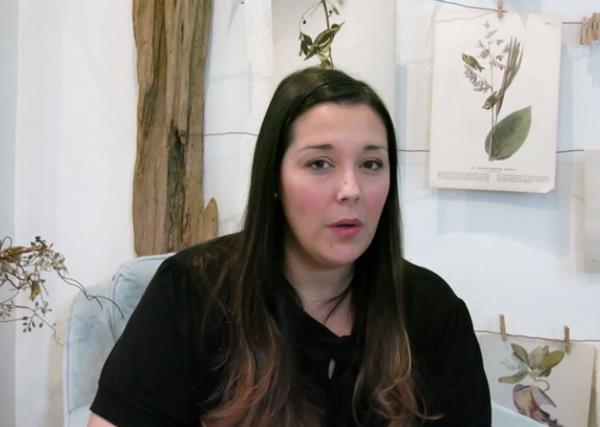
Social & Family Relationships When Dealing With Cancer Diagnosis
Dr. Mary Kathryn Rodrigue discusses how relationships with family and friends can change after being diagnosed with cancer and how to navigate these relationships during your treatment.
watch video
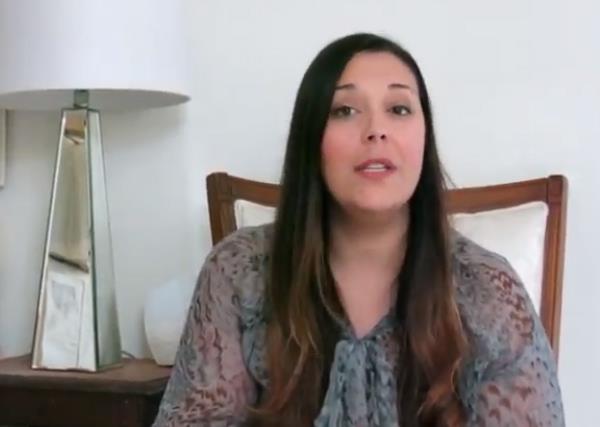
Communication With People In Your Sphere
Dr. Mary Kathryn Rodrigue discusses the importance communicating your emotions and how you feel to family, friends, and medical staff and how it can benefit your cancer treatment and mental health.
watch video
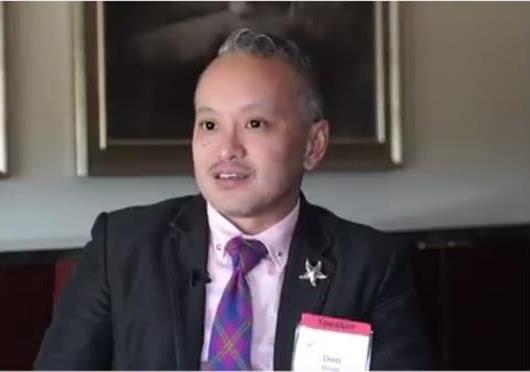
Importance of Sexuality After Breast Cancer
Dr. Dizon candidly talks about importance of sexuality after breast cancer. He discusses differences in sexuality view among men and women, and their impact on sexuality.
watch video

Cancer Co-Survivors: Adapting to a New Role
Dr. Dionne-Odom talks about adapting to a new role as co-survivor, what can be done, as well as emotional and psychological support through counseling and therapy.
watch video

Cancer Co-Survivors: Caring for Loves Ones and Yourself
A frank talk with Dr. Dionne-Odom about challenges co-survivors face as caring for loved ones, and the need for extra help to address these.
watch video
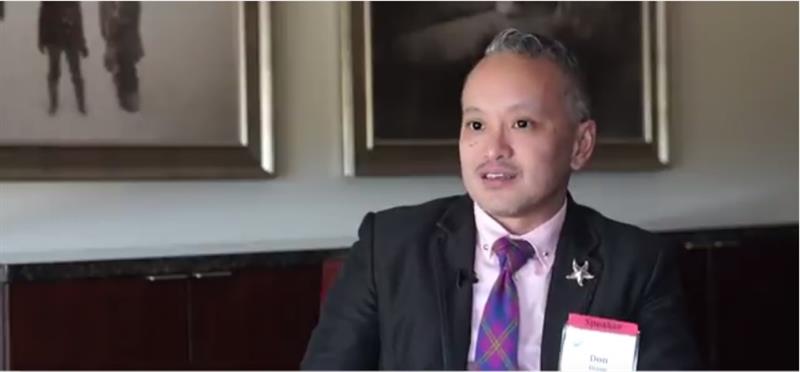
You’ve Lost that Loving Feeling: Sex and Intimacy
Dr. Dizon, MD, FACP addresses common concerns regarding sexuality and breast cancer among your survivors. He discusses intimacy after breast cancer, new insights and advances in sexuality health.
watch video

Is This Ever Going to be Over? Coping as a Co-Survivor – YBCS Workshop 2017
Dr. Dionne-Odom gives an overview of coping as a co-survivor and its many challenges.
watch video
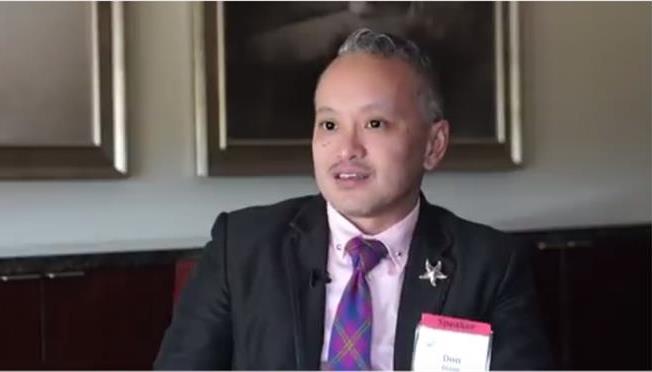
Speaking Sexual Health After Breast Cancer
Dr. Dizon shares the importance of speaking about sexual health after breast cancer with healthcare team, addressing issues of sexuality.
watch video